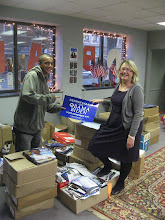But as soon as you step outside, on to the streets of Lilongwe’s old town, the scale of Malawi’s development challenges becomes all too clear.
A young man crawling along the ground with his hands in flip-flops, his under-developed legs flap uselessly behind him.
An old woman, her face ravaged by poverty, begs silently for pennies by the front door of the supermarket.
The street children are more vocal in their requests. “Help Mamma,” “Money boss”, “Mammie”, their hands outstretched, their dark brown eyes challenging you to ignore them.
Leave the city behind and deep in the country, where the majority of the country’s 12 million (and counting) people live, and you will witness an existence that has changed little in centuries. Families struggling to eke out a living growing maize for nsima, Malawi’s national dish, while coping with malaria, HIV/Aids, dirty water, cholera…whatever nasty surprise nature can throw at them.
But Malawi is not a poor country, it has one of the world’s most beautiful natural landscapes, with the magnificent Lake Malawi at its heart.
Rains permitting, it is a fertile land, where aubergines, bananas, tomatoes and greens grow without really trying.
And its citizens are energetic, optimistic and above all else, resilient.
It is its economy that is poor, that is struggling to grow in a global market where the selfish interests of the north are enshrined in treaties and emerging economies such as China forge ahead with a relentless ambition last seen in the hey day of the British Empire.
The government of Malawi has made great strides in the last three years to grow the economy, and the slogan for the recent Independence Day celebrations showcases the country’s ambitions: Building a Nation of Achievers.
But Malawi will not succeed on its own, just as the UK, or China, or France cannot succeed on their own.
We are all in this together.
Then let us pray that come it may
(As come it will for a' that),
That Sense and Worth o'er a' the earth,
Shall bear the gree an a' that.
For a' that, an a' that,
It's coming yet for a' that,
That man to man, the world, o'er
Shall brithers be for a' that.
And if Robert Burns hasn’t convinced you, read Jeffrey Sachs. His books, The End of Poverty and The Common Wealth are just plain common sense – a rare and precious commodity among economists, development experts and politicians.
For starters try the lecture he gave in Edinburgh last May.
We can end poverty if we want, we just need to want enough.
http://www.bbc.co.uk/radio4/reith2007/lecture1.shtml





1 comment:
It's hard to end it totally as some people do not want to be tied sown to a single home. Nomadic tendencies still exist, it's a part of human nature...
www.SpareSomeChange.com
Post a Comment